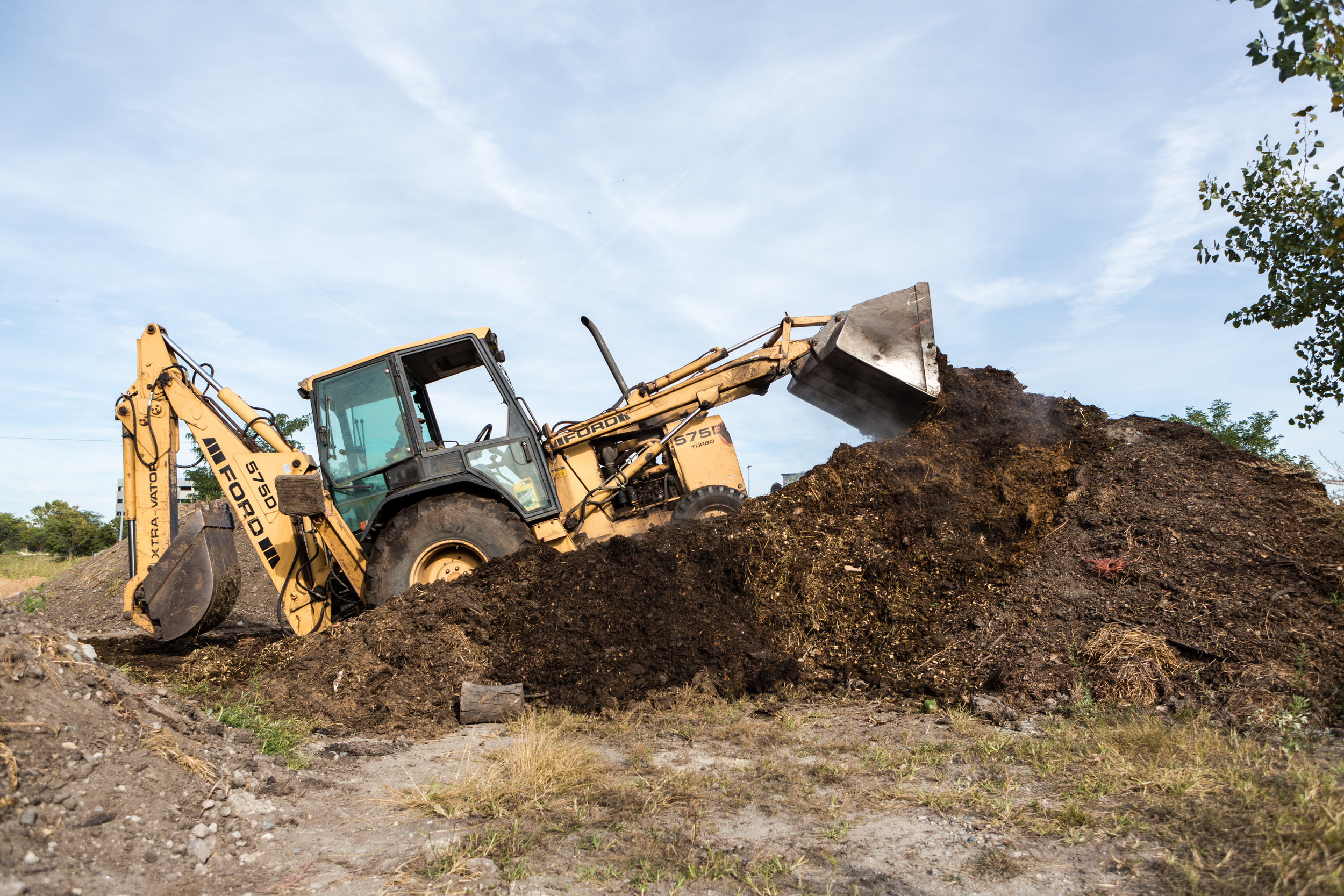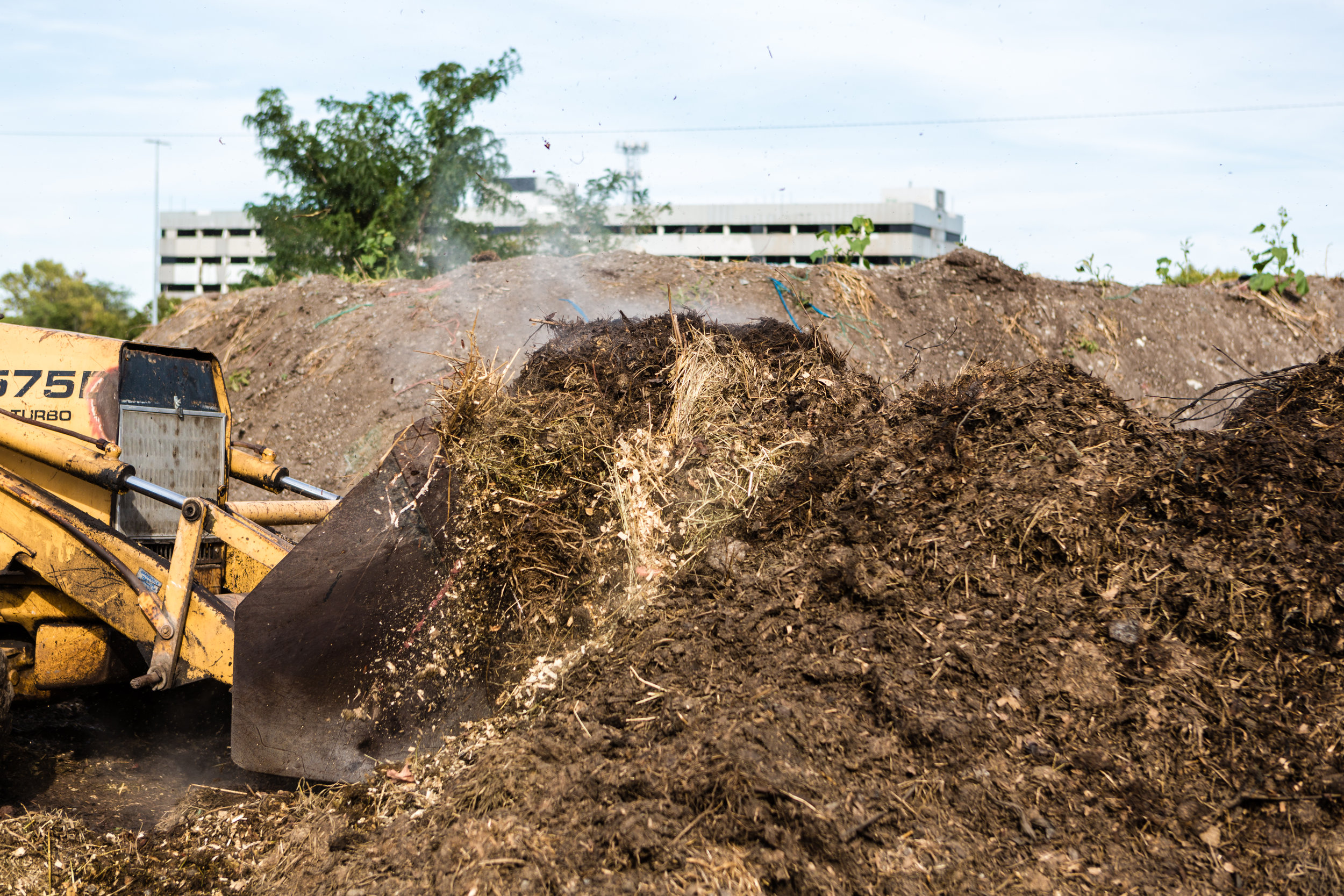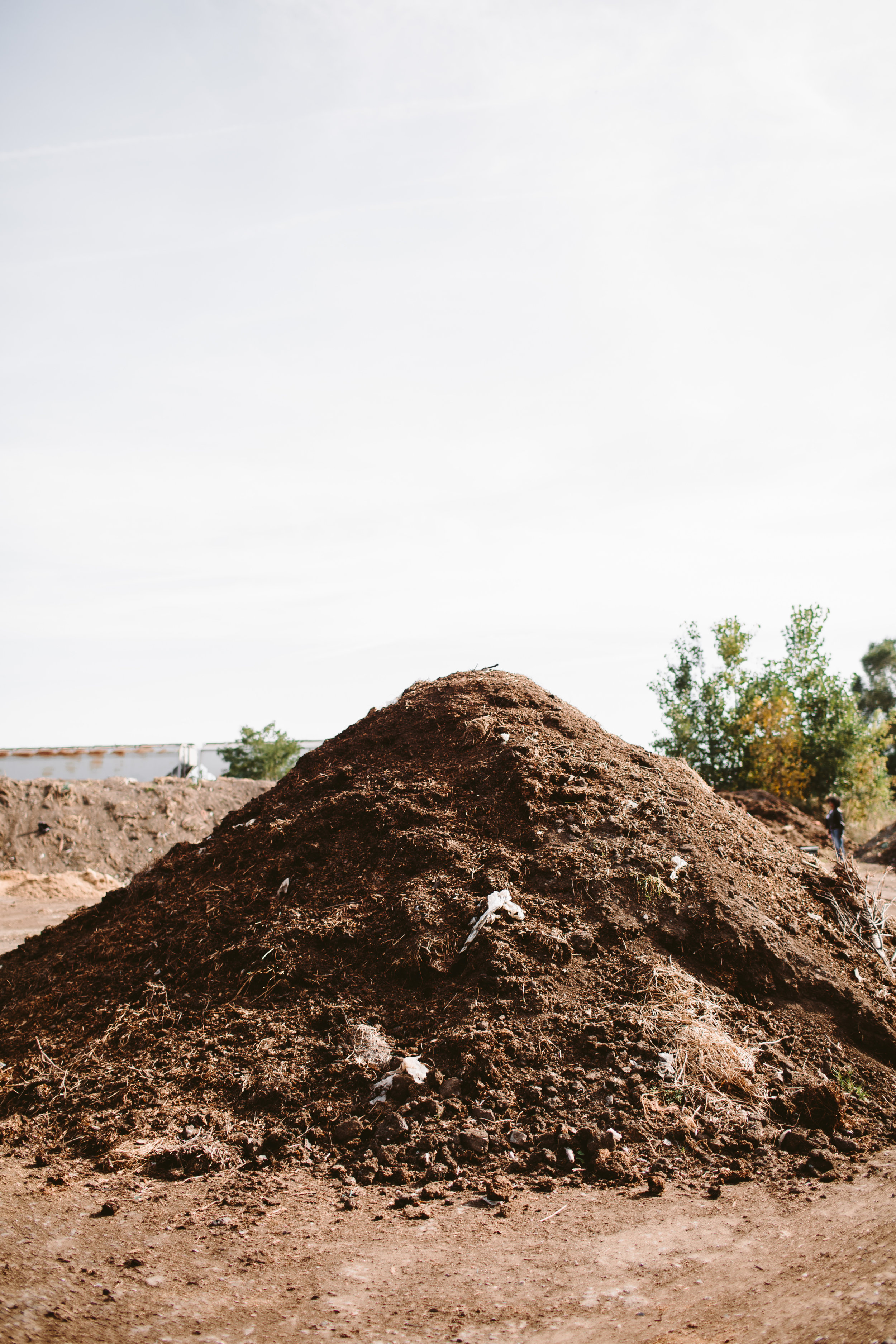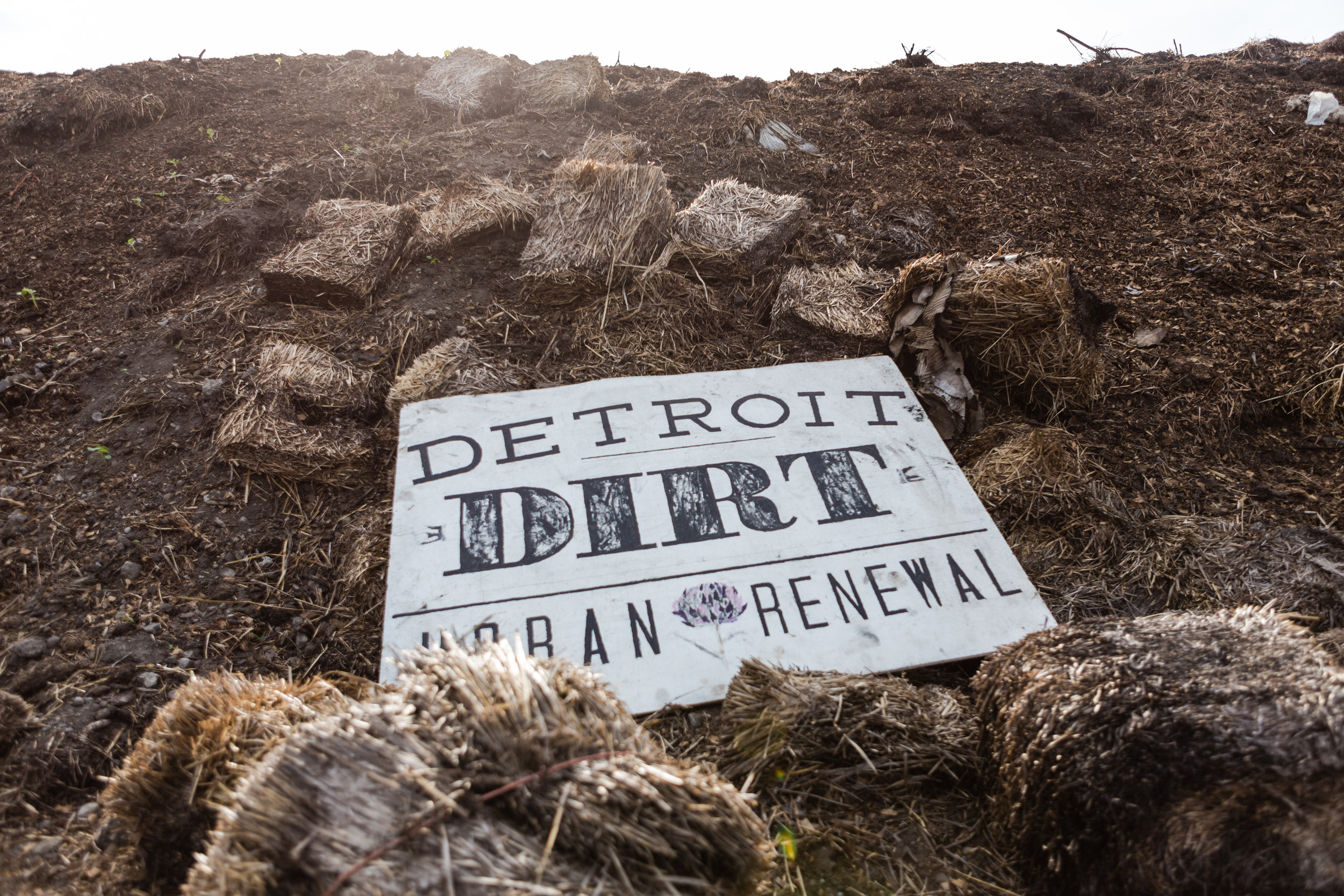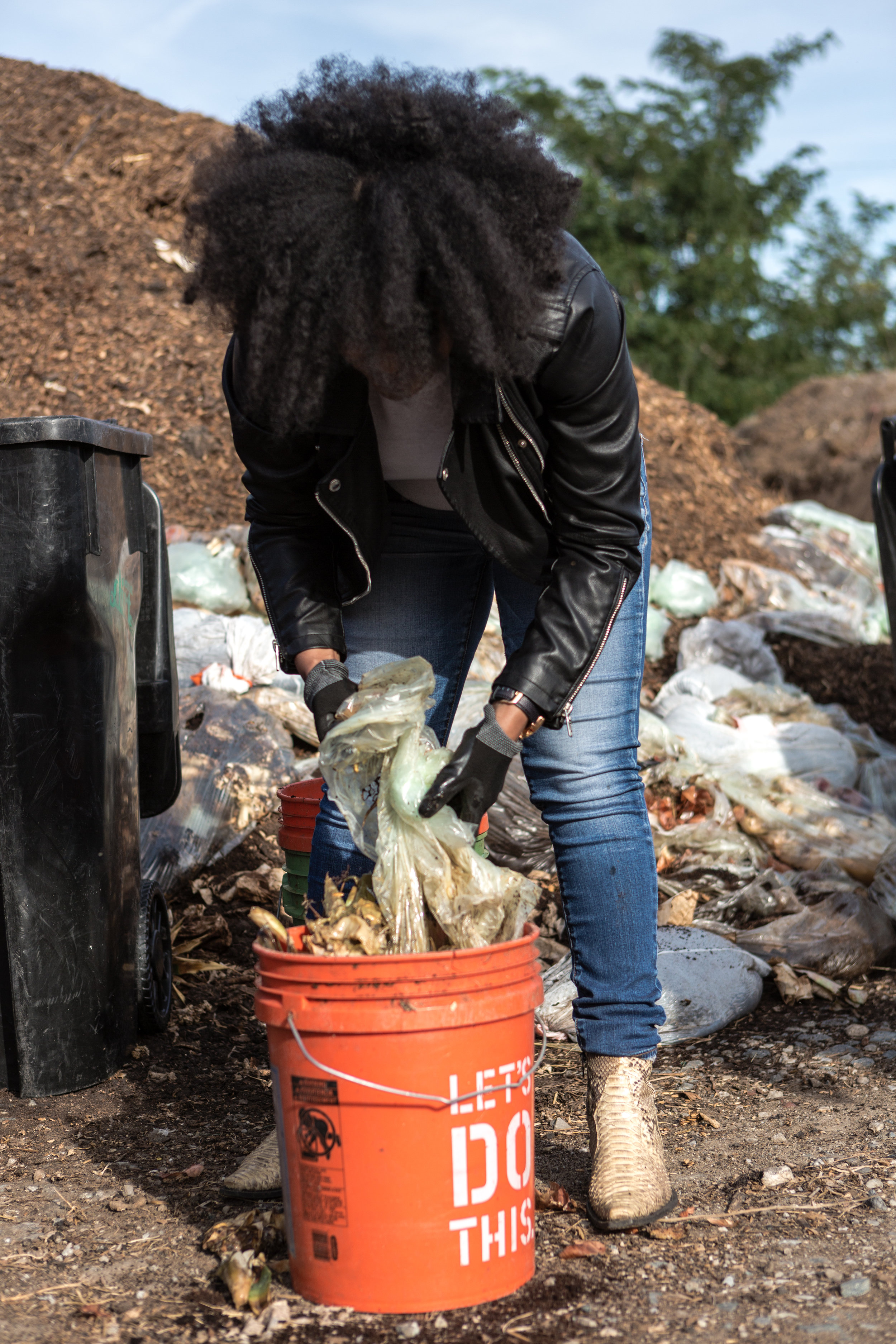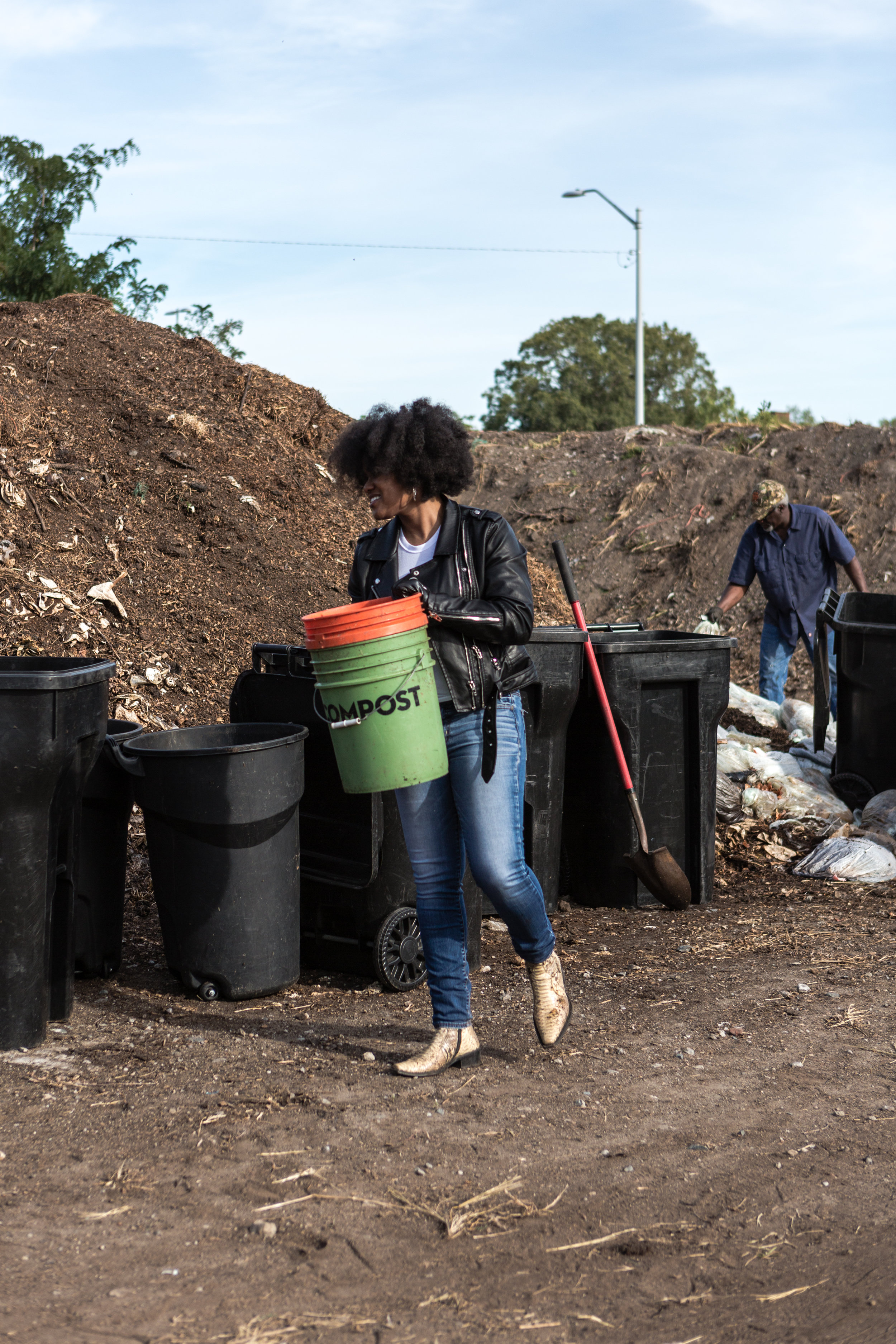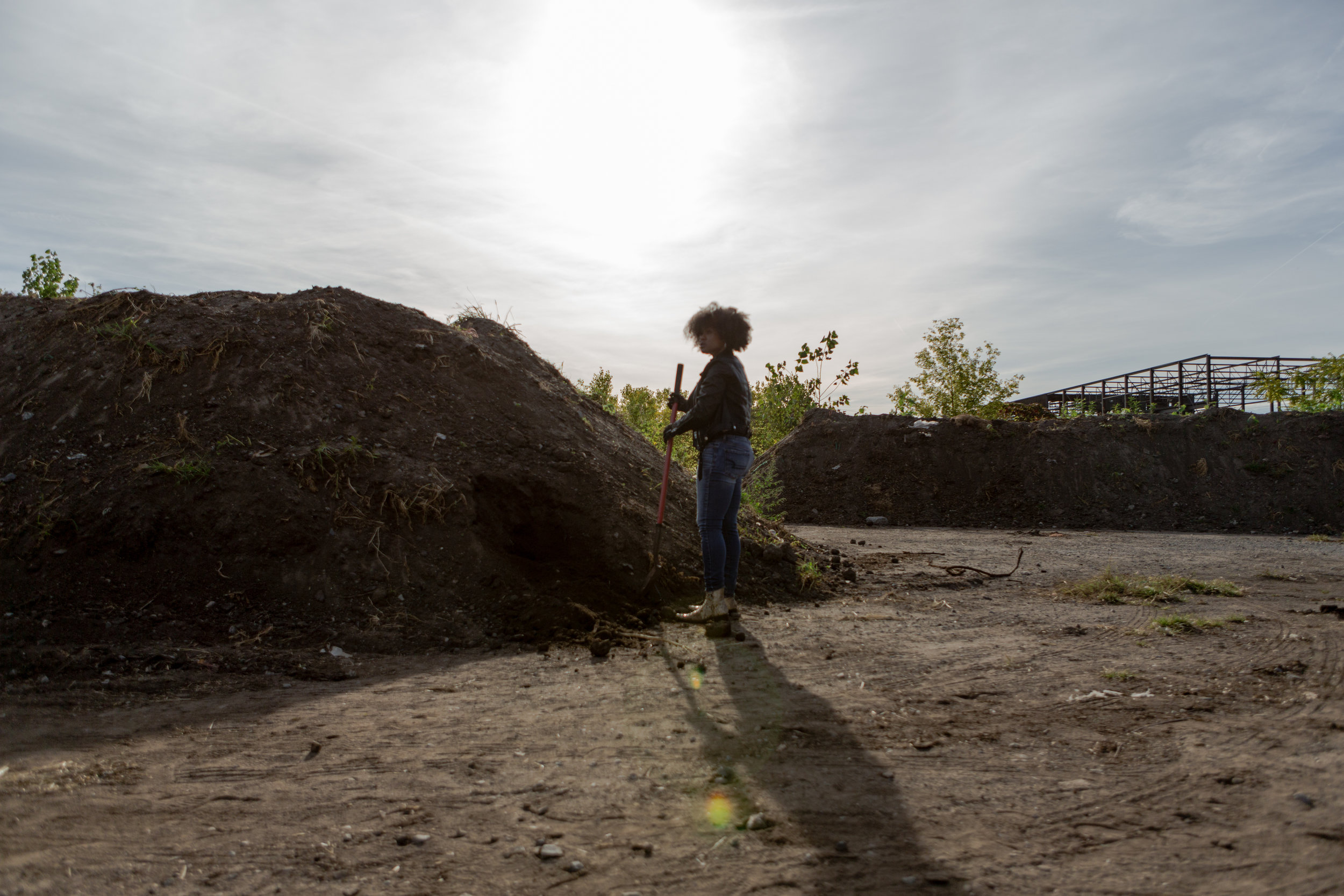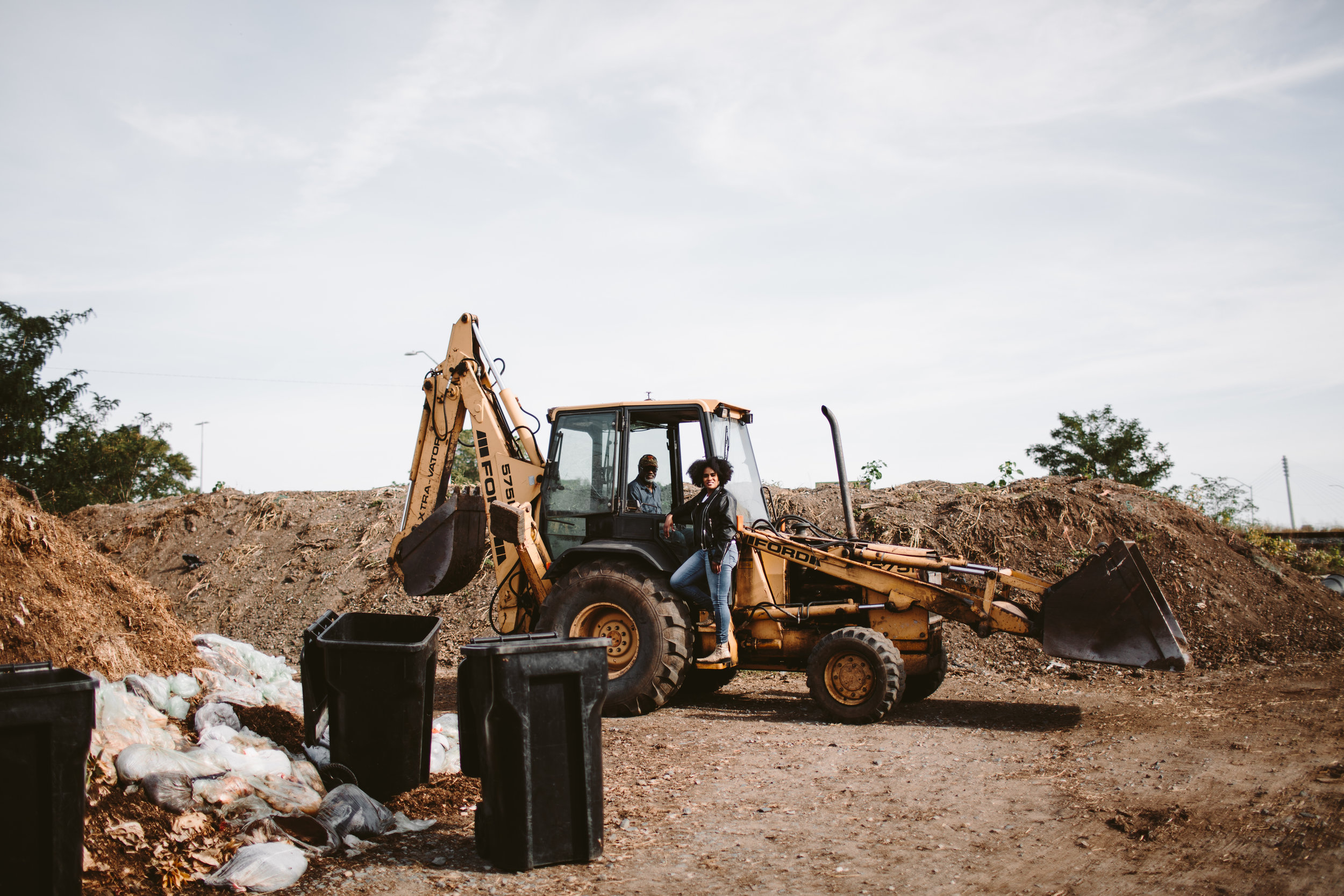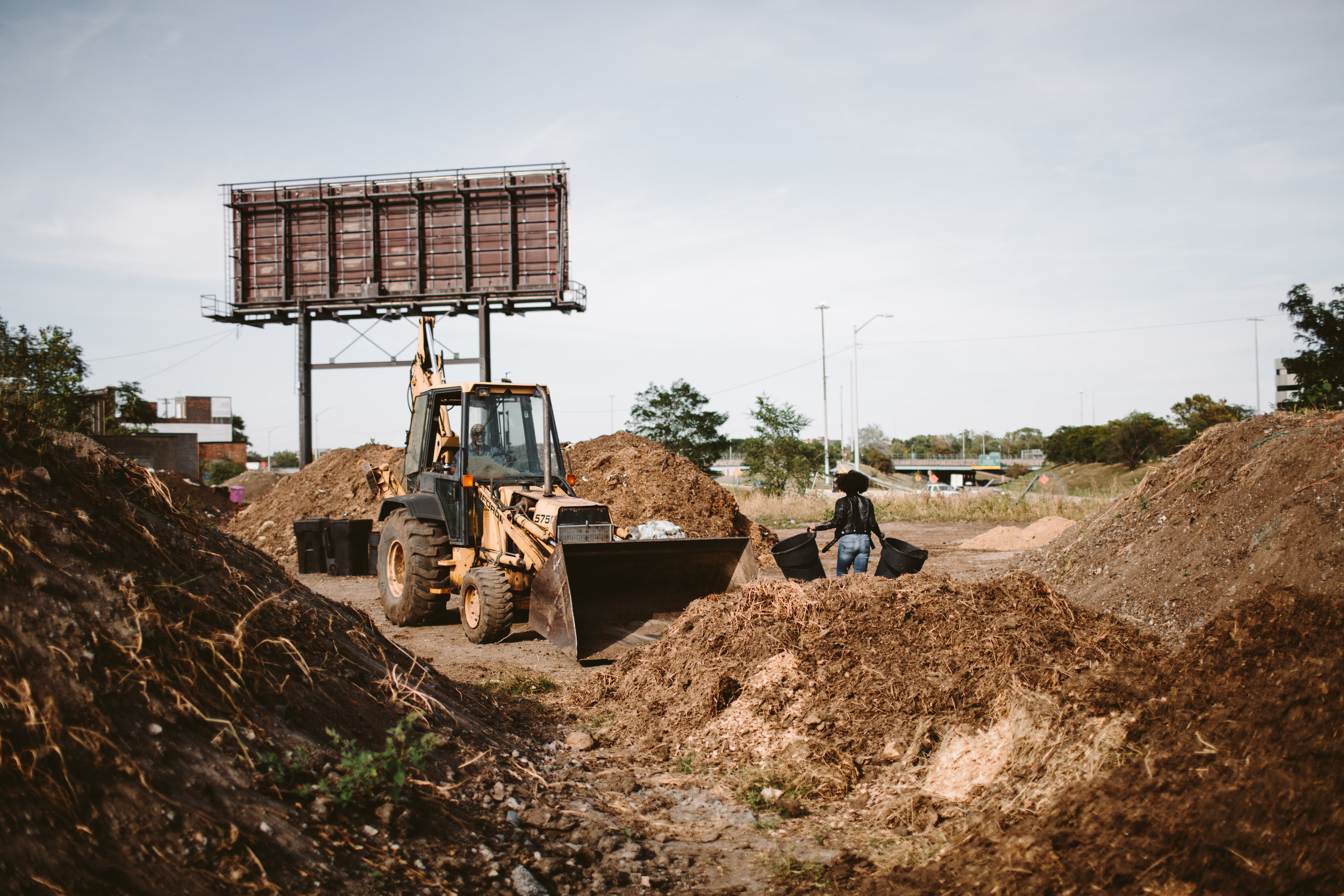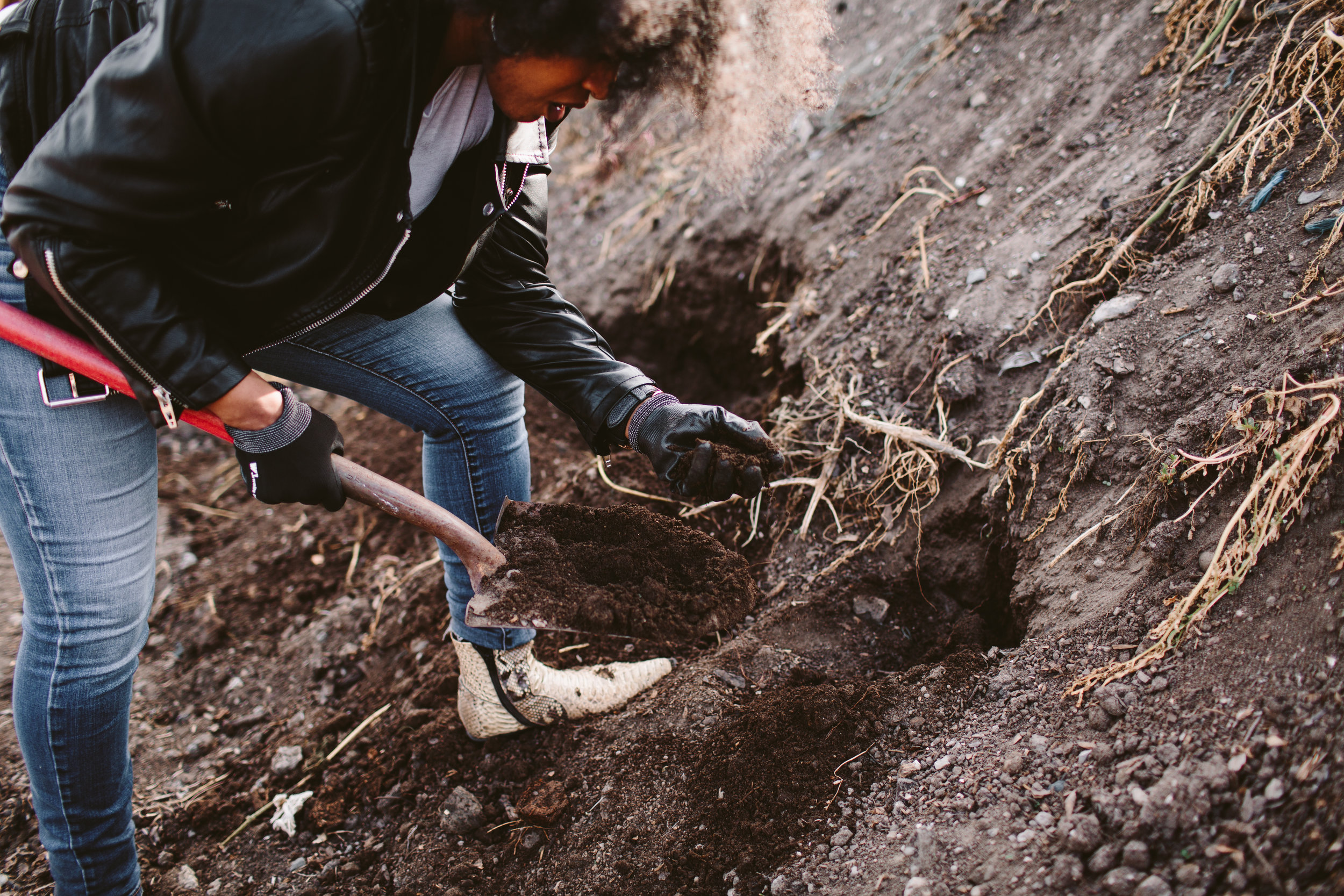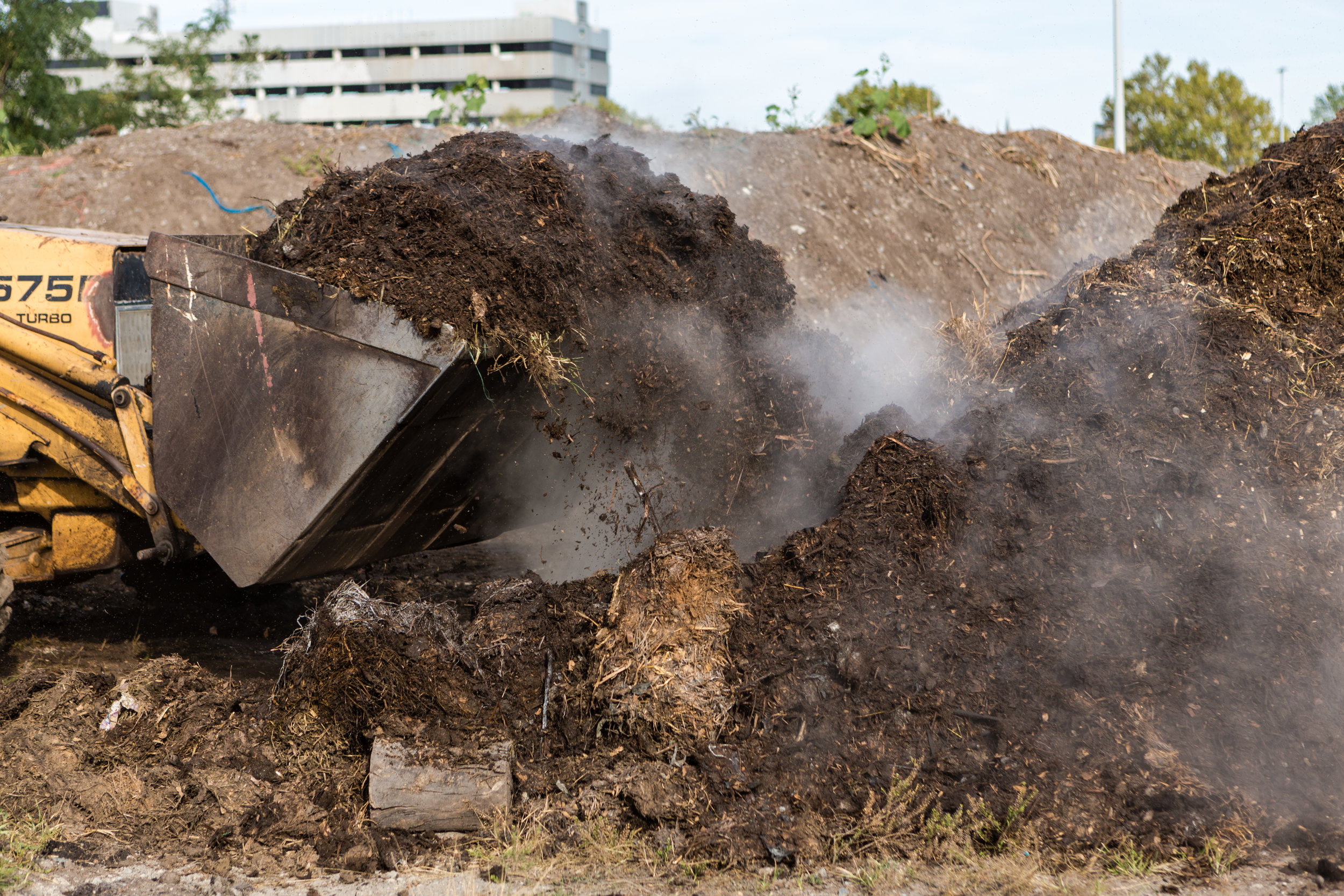Detroit Dirt: Protecting Soil For America's Farming Industry
Detroit Dirt:
Protecting Soil For America's Farm Industry
By Alison Hernon,
Fashion Director, Jejune Magazine
The United States, with its high agricultural productivity, faces a growing population, climate change, and increasing soil erosion. Given this situation, the question, “What can we do to protect the soil while we help feed people?,” arises.
Farming used to be the backbone of this country, but its support system has disappeared. I remember listening to John Mellencamp’s "Rain on the Scarecrow," as he sang about growing up on farmland and, over time, seeing the loss of land and the increased cuts in sales and profits for farming.
In an article published on July 14, 2014, the United Nations explained the urgency of protecting soil due to environmental changes, waste, and soil erosion. The article predicted that only 60 years of farming remained (https://news.un.org/en/story/2014/07/473762-un-agency-calls-urgent-action-protect-global-soil-depletion-degradation).
Against this background, during Fashion Week I met Pashon Murray at an event at The Ace Hotel in New York City. She spoke with passion about Detroit Dirt, of which she is co-founder and now owner. I was drawn to her drive and effort to develop her company and its message. Pashon, who grew up in Grand Rapids, Michigan, has watched the changes in the climate and the increased soil erosion and waste filtering into the soil, while farmers were trying to grow crops. Detroit Dirt, an organization that is based in Detroit, her current hometown, educates communities on the importance of environmental preservation and creating (and eating) healthy food. This essay covers Pashon, her organization and the work it is doing.
1. Name: Pashon Murray
2. Title: Co-Founder initially, now the owner
3. Location of Business: Detroit, MI
4. Please discuss the goal of Detroit Dirt:
The goal is to create a module on promoting healthy soil and to replicate worldwide. The module focuses on the removal of food waste from cities, and the support of urban farming and healthy soil. Soil is often contaminated and soil erosion persists.
The industrial movement and the creation of the national infrastructure led to water and soil losing their priority. Waste and climate change resulted in greater soil erosion. With Detroit Dirt, I started to talk to local, urban farmers, which led to composting a small parcel of land with healthy soil—having plenty of natural nutrients. We also planted trees and eliminated waste. The urban farming movement emphasizes that soil is key for farming.
Pashon Murray seen here in the photos working on soils for her Detroit Dirt organization.
5. We love your push on sustainability, how do you make this happen?
I moved back from Texas to Grand Rapids in 2003. In 2003, Grand Rapids, Michigan, there was a push to develop greater efficiencies. Grand Rapids was investing millions in building a more efficient city. They were ahead of the curve with sustainable practices. I started by consulting, and, when the automotive industry was trying to produce more economical cars, there was an effort to cope with food waste. I began talking to Automotive community after bankruptcy, they were recovering and I was invited to share my vision during the discussion of building efficient cars and autonomous vehicles
6. How do you provide communities with environmental awareness?
I promote awareness through tours and conferences. I only participate in workshops a few times a year and I travel nationally and abroad to share the story. The Detroit Dirt Foundation provides educational programs.
My tour schedule is online at www.detroitdirt.org and currently I’m on the last leg of it.
7. Please tell us about yourself. What is your educational/work background? We want to know how this whole business evolved.
I was a business and marketing major at Texas Southern University located in Houston. My grandparents had a family farm in Mississippi, and my dad had a maintenance and contracting company. I was surrounded by farming while growing up. In Michigan, my hometown, there was a big push for urban growth and environmental awareness. My background was ideal for me to get involved and to develop Detroit Dirt.
Pashon Murray photographed here on top of her Detroit Dirt project.
8. Discuss the difference between organic farming now and the past.
Organic food used to be cheap. Now it’s so expensive unless you shop at a local farmer’s market. Complicating matters, the fast food industry, with its low prices, has put a dent in the organic/healthy living movement. There needs to be a push for local and circular economies to support each other locally.
9. Elaborate on how Detroit Dirt makes employment opportunities?
We are offering opportunities for local communities to collaborate with Detroit Dirt. I’ve collaborated with the Goodwill GreenWorks, they train returning citizens for employment. Eighty percent of the trainees were formerly incarcerated and we believe our partnership will provide jobs for folks in the community. I reached out to General Motors, in Michigan, which is making a big push in urban development. Starting with a pilot program in 2011-2012, is when I attended supplier partnership meetings and we were all there to discuss landfill free and waste diversion practices. I went to one of General Motors' plants, where I developed a contract, and this led to the local zoo, where I created a contract with the Detroit Zoological Society. Next, I developed another contract with Blue Cross, Blue Shields Insurance, to help collect organics from BCBS Blue Cross Blue Shield and others. We wanted to provide urban farmers and gardeners with resources.
10. Please explain what composting is and how that is beneficial?
Composting is when you take food scraps and let them decompose to become organic matter. The use of recycled food waste as compost improves soil health and structure; increases drought resistance; and reduces the need for supplemental water, fertilizers, and pesticides.
11. Please tell us what led to the problems of soil and what Detroit Dirt did:
Soil over the years with the industrial movement, and more attention to creating more infrastructure, this led to water and soil not much of a priority. This led to waste, and due to waste and climate change more and more erosions developed. With Detroit Dirt, I started to talk to local urban farmers, and I listened and acted by start composting in a small land to keep the soils healthy and provide their natural nutrients. This included by planting trees, and eliminating waste. Over the years, the urban farming movement started to speak out that soil is key for farming. And, soon enough, The United Nations, put out an article that we have 60 years left for harvests or soil due to soil erosion and contamination issues. They said that the 60 years of harvest left but that data applies globally.
12. Please explain what composting is and how that is beneficial?
Compost is organic matter that has been decomposed in a process. We divert organics from the landfill and herbivore manure from the Detroit Zoological Society. We supply worm castings and compost as by-products. The use of recycled food waste as compost improves soil health and structure; increases drought resistance; and reduces the need for supplemental water, fertilizers, and pesticides.
13. What can we do individually to help?
We need to be aware of the situation and how much food we waste. Everyone can support organic and local farming; shop more at local farmers’ markets; support efforts to reverse climate change; and help with environmental preservation.
We need to manage the food system properly and to minimize the waste. When food shopping at organic stores such as at Whole Foods or Farmers’ Markets, know where your food is coming from. Did the apples and mangos, for example, come from a local area or travel far? By buying local fruits and vegetables at big chain markets, are they organic? We should inquire about them before making a purchase.
14. Website: https://www.detroitdirt.org
Instagram: @detroitdirt
Interview by Alison Hernon, Fashion Director @ Jejune Magazine

